
Story of an Egyptian Pharaoh
[Close friends and family are disturbed by the pharaoh not keeping regular hours at court.]
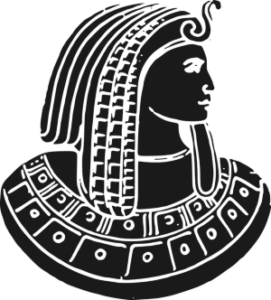 “Sire, you are not conducting yourself properly by pursuing worthless past times you ought to be seated solemnly on your stately throne transacting affairs of state throughout the day. That way the Egyptians would know that they’re being governed by a competent man and your reputation would improve. But as it is, you are not acting at all like a king.”
“Sire, you are not conducting yourself properly by pursuing worthless past times you ought to be seated solemnly on your stately throne transacting affairs of state throughout the day. That way the Egyptians would know that they’re being governed by a competent man and your reputation would improve. But as it is, you are not acting at all like a king.”
The pharaoh retorts: “When archers need to use their bows, they string them tightly, but when they are finished using them, they relax them. For if a bow where to remain tightly strung all the time, it would snap and be of no use when someone needed it. The same principle applies to the daily routine of a human being. If someone wants to work seriously all the time, and not let himself ease off for a share of play, he will go insane without even knowing it or at least suffer a stroke. And it is because I recognize this, that I allot a share of my time to each aspect of life.”
―
Does your pursuit of ‘more’ leave you feeling ‘less’?
More achievements, more progress, more productivity – but somehow, less joy, less peace, less satisfaction.
If this sounds like your inner world, you’re not alone. The irony is that the thief robbing you of your happiness could be your own perception of leisure.
You know those sacred, unclaimed moments of downtime that should be your sanctuary from stress? But instead of feeling refreshed, you’re left with a nagging sense of guilt, a voice whispering “I’m sitting here doing nothing, just wasting my time”.
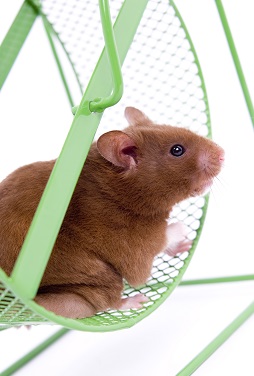
I know what this feels like. How about you?
This isn’t just a personal problem—it’s a modern-day crisis.
And the root of this crisis? It’s not what you’d expect. This article will guide you through the untold story of leisure, productivity, and happiness. We’ll debunk long-standing myths about productivity, expose how your perception of leisure could be stealing your joy, and unmask the hidden warning signals in your brain.
And the best part? We’ll not only reveal the problem but also provide a new, counter-intuitive path to happiness—one that involves redefining leisure, confronting idleness aversion, and embracing the present. Intrigued? Let’s dive in and start the journey towards a happier, more balanced life.
Unveiling the Hidden Crisis of Modern Life
In our race to succeed and maintain productivity, we’ve unknowingly fallen into a silent crisis. A crisis that blurs the boundaries between work and play, affecting both our personal and professional lives. It concerns our view of leisure, a vital source of happiness, which has been steadily undermined by societal pressures.
Social psychologist and author of “Rest: Why You Get More Done When You Work Less,” Alex Soojung-Kim Pang highlights this issue, asserting, “We’re so caught up in the cycle of being ‘always-on’—always working, always available—that we fail to see how it’s eroding our ability to relax, to truly disengage from work, and to find joy in leisure”.

As we further explore this dilemma, it becomes clear that our distorted view of leisure lies at the root of the issue. And it is this very misinterpretation that has the power to silently sabotage our happiness, transforming what should be a time for relaxation and rejuvenation into a continuous pursuit for more.
Rethinking Leisure: A Powerful Tool for Personal Happiness
To unravel this crisis and rediscover the joy of leisure, we must first understand the societal influences and internal pressures that have reshaped our perception of free time. We must debunk a pervasive myth that has seeped into our collective consciousness—one that has become so deeply ingrained in our lifestyle that we fail to see its impact on our joy and overall well-being.
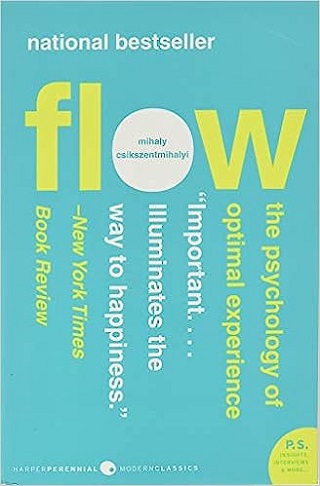
One of the all-time classics to keep on your personal development bookshelf.
According to psychologist and happiness researcher, Dr. Mihaly Csikszentmihalyi, the author of “Flow: The Psychology of Optimal Experience,” our understanding of leisure has a profound impact on our happiness. He emphasizes, “Leisure is not the absence of work, or a time for mindless entertainment, but it’s the time we have to pursue activities that provide intrinsic satisfaction and help us achieve the state of flow – a state of deep immersion and enjoyment. Leisure is our chance to live in the moment, and to find joy and satisfaction in our everyday lives”.
With such wisdom in mind, it becomes evident that redefining our perception of leisure is not just a choice but a vital step towards embracing a happier, more fulfilling life.
Busting the Productivity Myth: How Societal Changes Impact Your Joy
At the core of our misunderstanding of leisure, there’s this societal belief that success equals non-stop productivity. It’s so deeply rooted in us that it transforms our leisure time into an endless chase for self-improvement and accomplishment.
Anthropologist David Graeber, in his book “Bullshit Jobs: A Theory,” keenly observed this phenomenon. He stated, “We’ve constructed a narrative in our society where work isn’t just a means to survive; it’s a way to measure the worth of a human being. In this narrative, endless productivity becomes a virtue, even during leisure time, leading to a toxic culture of overwork and burnout“.
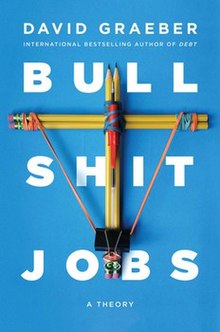
“…endlessly productive becomes a virtue…”
Think about it. How often do you find yourself checking work emails during your ‘off’ hours, or even when you’re on vacation? It’s that ‘always-on’ culture sneaking into your downtime, convincing you that’s how you achieve success.
And what about the time you spend trying to learn a new language, attending online courses, or digesting self-help books? Personal growth is important, no doubt. But when every moment of your free time is spent on ‘productive’ activities, where’s the space for pure relaxation?
Remember when leisure time could be reading a novel or a walk in the park? Now, it’s all about that podcast on business strategies or the latest documentary on climate change. Even our workouts are under the productivity spell, with every step and calorie turned into another number to crunch.
So, you see, our joy of leisure is being quietly hijacked by this unending quest for productivity. And it’s about time we address it.
The Warning Signal for Happiness You Weren’t Aware Of
You know that sense of unease that creeps up when you’re always in ‘go-mode,’ never fully appreciating the here and now? That’s actually a subtle distress signal your happiness might be in danger.
Dr. Jon Kabat-Zinn, a leading expert in mindfulness, shines a light on this issue. He suggests, “The feeling of being perpetually ‘on’ and unable to enjoy the present moment is a clear indication that the balance between doing and being is off. This imbalance can erode our capacity for joy and contentment.”
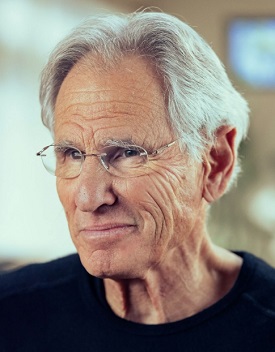
Jon Kabat-Zinn’s mission has involved bringing mindfulness and meditation into mainstream medicine.
We all want a brighter future. Who doesn’t, right? But the problem starts when this desire morphs into an all-consuming pursuit that blinds us to the joy of the present. When we’re so busy making the most out of every second, we forget to simply savor the moments as they come. That’s when the balance tips, and we find ourselves feeling perpetually off-kilter.
But, real satisfaction isn’t about chasing endless tomorrows. It’s about relishing what’s right here, right now. So, the next time you find yourself obsessing over future gains, pause. That’s your red flag, warning you to slow down and check in with your happiness. Because what’s the point of a brighter future if we can’t enjoy the journey getting there?
Unlocking the Brain: The Neuroscience Connecting Leisure and Happiness
Ever wonder why it’s so hard to just chill and enjoy downtime? Well, here is a simplified view of the fascinating world of neuroscience that connects our brains, leisure, and happiness.
The Dopamine Effect: The Little Molecule That Packs a Punch
Let’s introduce the star of the show: dopamine. This tiny brain molecule has a huge influence on how we view leisure. You know that relentless drive to always be doing something, even during your off hours? Yup, that’s dopamine at work.
Dopamine is like our internal cheerleader, always pushing us to act, especially when it comes to grabbing rewards – from snagging the last donut to climbing the corporate ladder. This pep rally in our brains is why we tend to see leisure as an investment in our future success.
Dopamine: The Happiness Double Agent
Here’s where things get tricky though.
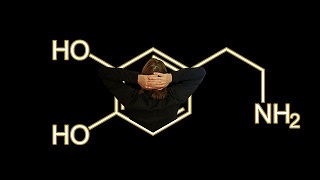
Too much dopamine or too little can cause us problems.
Dopamine is a bit of a double agent when it comes to happiness. On one hand, it’s the fuel behind our motivation and goal-chasing tendencies. But on the other hand, it doesn’t exactly brew happiness.
Instead, dopamine keeps us in a constant state of wanting more, always dissatisfied, and always dreaming of a better future. It’s a sneaky neurological trap: the very thing driving us to succeed can also rob us of joy in the present.
The Downside of Overdoing Productivity: Dopamine’s Unexpected Blow
If we’re not careful, this push for constant productivity, even during leisure time, can backfire big time. It can drain us mentally and physically, leaving us feeling worn out, demotivated, and even spiraling into depression. According to brain expert Dr. Andrew Huberman, dopamine isn’t an endless resource. It needs recharging through good old R&R.
So, when we use our free time to chase more future goals instead of kicking back and relaxing, we’re actually depleting our dopamine reserves. The result? A constant state of ‘on,’ exhaustion, anxiety, and the bitter irony of unhappiness. Now, do you really want that?
Combating the Hidden Adversary: The Curious Case of Idleness Aversion
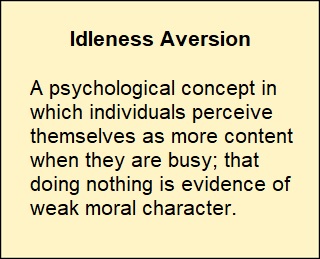 Alright, we’ve tackled dopamine, but there’s another happiness thief hiding in the shadows: idleness aversion. Sounds fancy, right? Well, let’s break it down.
Alright, we’ve tackled dopamine, but there’s another happiness thief hiding in the shadows: idleness aversion. Sounds fancy, right? Well, let’s break it down.
The Invisible Barrier: Getting Real with Idleness Aversion
Idleness aversion is essentially our deep-seated unease with, you guessed it, idleness. It’s like this pesky invisible barrier preventing us from really sinking into those sweet moments of rest and leisure. It’s born from the misguided idea that any ‘unproductive’ time is wasted time. So instead of chilling out and enjoying our downtime, we dodge it.
Dr. Sandi Mann, a psychologist, and author, warns of the damage this can cause. “Idleness aversion, or the inability to enjoy downtime, can lead to increased stress and decrease in overall well-being. We’re not wired to be ‘on’ all the time. By avoiding idleness, we’re depriving ourselves of the crucial mental and physical rest we need”.
Restless Paradox: When Relaxation Becomes a Task
This fear of being idle triggers a weird restlessness paradox. Ever found yourself turning relaxation into another item on your never-ending to-do list? Instead of savoring those leisure moments, we’re restlessly hunting for ways to make them ‘productive.’ The result? Leisure ends up causing anxiety, not joy and relaxation because it feels unproductive. Talk about a catch-22!
Mental Health Red Alert: The Stealthy Toll of Idleness Aversion
Here’s the kicker though: idleness aversion isn’t just putting a damper on relaxation—it’s also silently sabotaging our mental health. That constant pressure to be productive, even when we’re supposed to be off the clock, can push us into burnout, anxiety, and depression. For some, being busy becomes a way to dodge dealing with tough emotions, turning work into a sanctuary.
Clinical psychologist and author, Dr. Melanie Greenberg, stresses the importance of rest and leisure in mitigating these negative effects. She explains, “Taking time to rest, relax, and engage in leisure activities is not a luxury; it’s a necessity for our mental health. It’s important to challenge the cultural norm that equates constant busyness with success and worthiness. Resting is not being lazy, it’s caring for our well-being”.
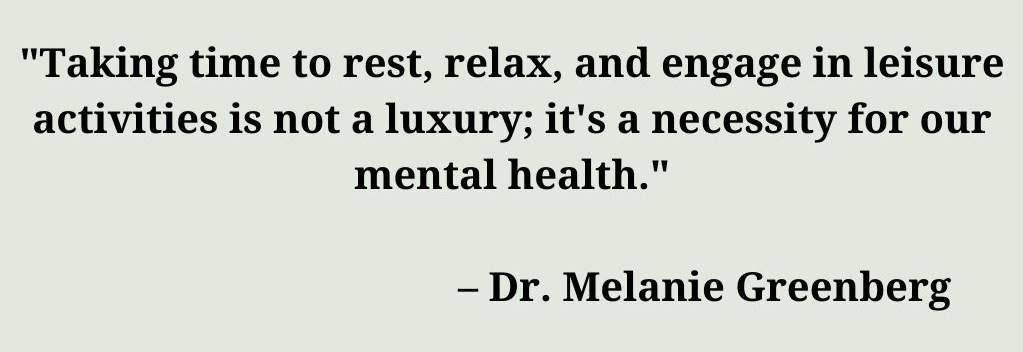
But here’s the good news: by recognizing the true value and importance of rest and leisure, we can break free from this unhealthy cycle. That’s the secret sauce to a more balanced, fulfilling, and downright happier life. Stay tuned for how we do just that!
Joining the Joy Revolution: Leisure, Meet Happiness
Let’s flip the script and bring joy back into our leisure time. Here’s how:
The Unexpected Secret: Re-imagining Leisure to Boost Joy
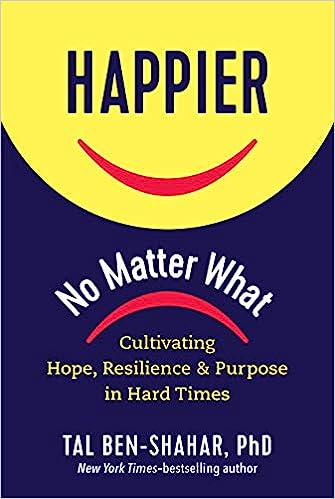
NYT Best-Seller and former lecturer at Harvard and Columbia.
First, we’ve got to embrace a new, seemingly odd way of looking at leisure. Burkeman clues us in: instead of seeing leisure as a stepping stone to something else, we should see it as the destination. This mindset shift—from viewing leisure as a task to pure joy—can be a game-changer. So let’s dedicate our leisure time to experiences that make us smile right now, not just ones that promise future rewards.
Positive psychology expert and bestselling author, Dr. Tal Ben-Shahar, is a strong advocate of this perspective. He affirms, “Happiness does not lie at the end of the road, but it is the road. Similarly, leisure is not valuable merely for the future benefits it may bring, but for its inherent joy in the present. The more we see leisure as an end in itself, the more happiness we can derive from it”. This re-imagined perspective of leisure places the emphasis on the process and experience, rather than the outcome.
Mindfulness Magic: Simple Ways to Bring it into Your Everyday Life
Here’s where mindfulness comes in. It’s our golden ticket to transforming how we see and experience leisure. It’s about being wholly absorbed in the moment. Regular exercises like meditation can help enhance this skill. So, let’s appreciate leisure for what it is, rather than what it could give us down the line.
Thich Nhat Hanh, a world-renowned mindfulness coach, and meditation expert, beautifully articulates this sentiment. He says, “Mindfulness helps us freeze the frame so that we can become aware of our sensations and experiences as they are, without the distorting coloration of socially conditioned responses or habitual reactions”. This full immersion in the present can magnify our joy during leisure activities, as we’re not preoccupied with what’s next or any other future-oriented thoughts.
The Power of Now: Embracing the Present for Future Bliss
Living in the now is an incredible way to counter our constant craving for more. It’s about recognizing and celebrating the good in our lives today, instead of always eyeing a better tomorrow. Gratitude exercises can help us find happiness in our current circumstances.
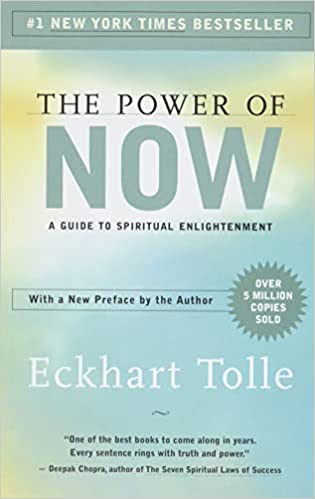
The Power of Now is Eckhart Tolle’s most famous work that focuses on the depth of the present moment.
Eckhart Tolle, a self-improvement author, and spiritual teacher, emphasizes the importance of living in the present moment. He contends, “Realize deeply that the present moment is all you have. Make the NOW the primary focus of your life”.
Pause for a moment and acknowledge the feelings that have brought you here. The exhaustion, overwhelm, and dissatisfaction—are not signs of weakness but signals that you are ready for a change. You’ve recognized the impact of your perception of leisure on your well-being, and that’s a powerful revelation.
Imagine this: You wake up each day with a renewed sense of purpose and a deep reservoir of happiness. The boundaries between work and play become clearer, and you embrace leisure as an essential ingredient in your recipe for a fulfilling life. Gone are the days of guilt and restlessness. Instead, you savor the beauty of each leisure moment, relishing the inherent joy they bring.
The benefits of this transformative journey are vast. By re-imagining leisure as an end in itself, you reclaim the power to find satisfaction in the present. And as you embrace the power of now, gratitude becomes a wellspring of happiness, nourishing your soul with the richness of the present moment.
Let go of the societal pressures that equate success with non-stop productivity. Release the fear of idleness and the relentless pursuit of more.
You have the power to rewrite the narrative of your life, one leisure moment at a time.
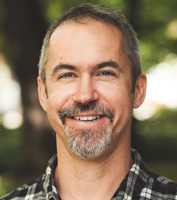
Paul Strobl, MBA, CPC
Owner of Confide Coaching, LLC
Paul is a Master Life Coach for GenX and GenY executives and business owners. Originally from Houston, Texas, he has been location independent for most of his adult life. He currently resides in the Rhodope Mountains of Bulgaria near the Greek border with his brilliant wife, 14-year-old stepson (officially adopted in 2021!) and a Posavac Hound rescue.
References
Pang, A. S.-K. (2016). Rest: Why You Get More Done When You Work Less. Basic Books.
Csikszentmihalyi, M. (1990). Flow: The Psychology of Optimal Experience. Harper & Row.
Graeber, D. (2018). Bullshit Jobs: A Theory. Simon & Schuster.
Kabat-Zinn, J. (2005). Wherever You Go, There You Are: Mindfulness Meditation in Everyday Life. Hyperion.
Huberman, A. (2022). Harnessing Dopamine for Optimal Function. Huberman Lab Podcast
Mann, S. (2018). The Science of Boredom: The Upside (and Downside) of Downtime. Little, Brown Spark.
Greenberg, M. (2016). The Stress-Proof Brain: Master Your Emotional Response to Stress Using Mindfulness and Neuroplasticity. New Harbinger Publications.
Ben-Shahar, T. (2007). Happier: Learn the Secrets to Daily Joy and Lasting Fulfillment. McGraw-Hill Education.
Hanh, T. N. (1991). Peace is every step: The path of mindfulness in everyday life. Bantam Books.
Tolle, E. (2004). The Power of Now: A Guide to Spiritual Enlightenment. New World Library.
Burkeman, O. (2021). Four Thousand Weeks: Time Management for Mortals. New York: Farrar, Straus and Giroux.
Lieberman, D. Z., & Long, M. E. (2018). The Molecule of More: How a Single Chemical in Your Brain Drives Love, Sex, and Creativity―and Will Determine the Fate of the Human Race. Dallas: BenBella Books.

